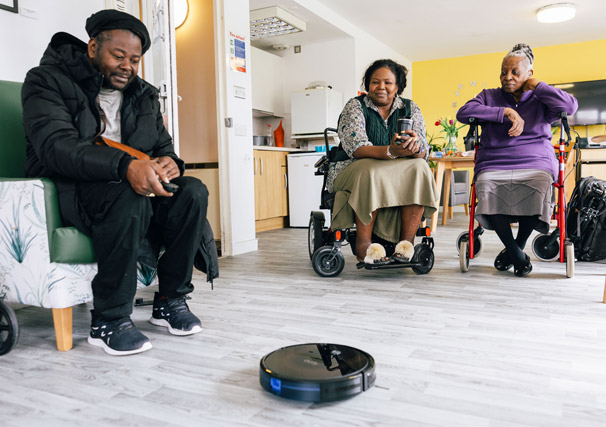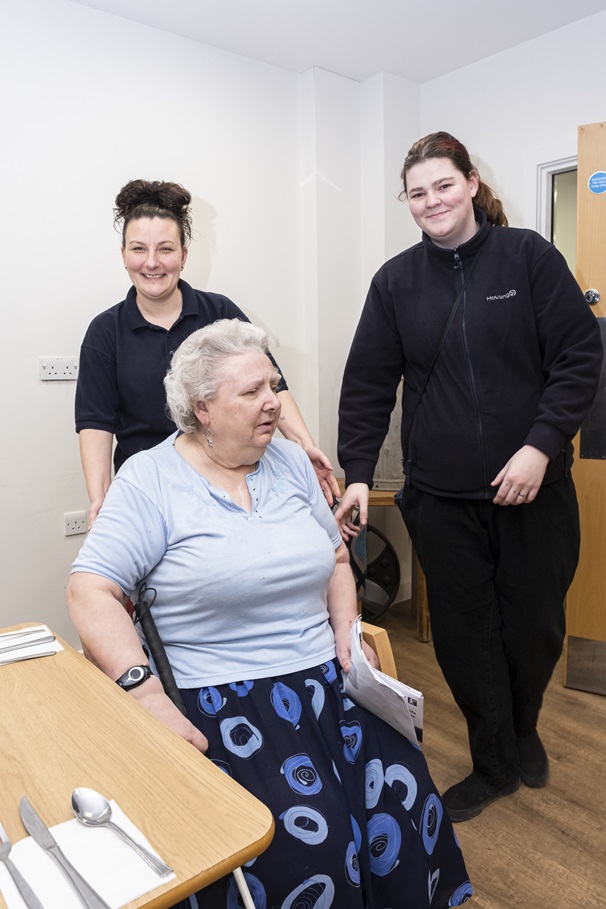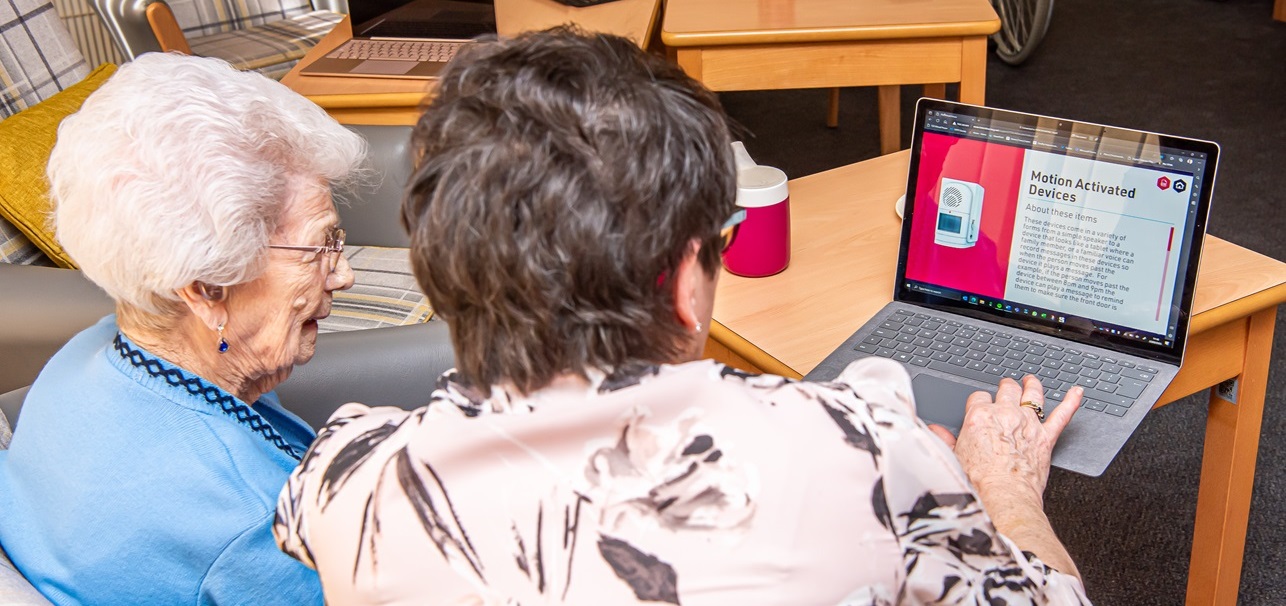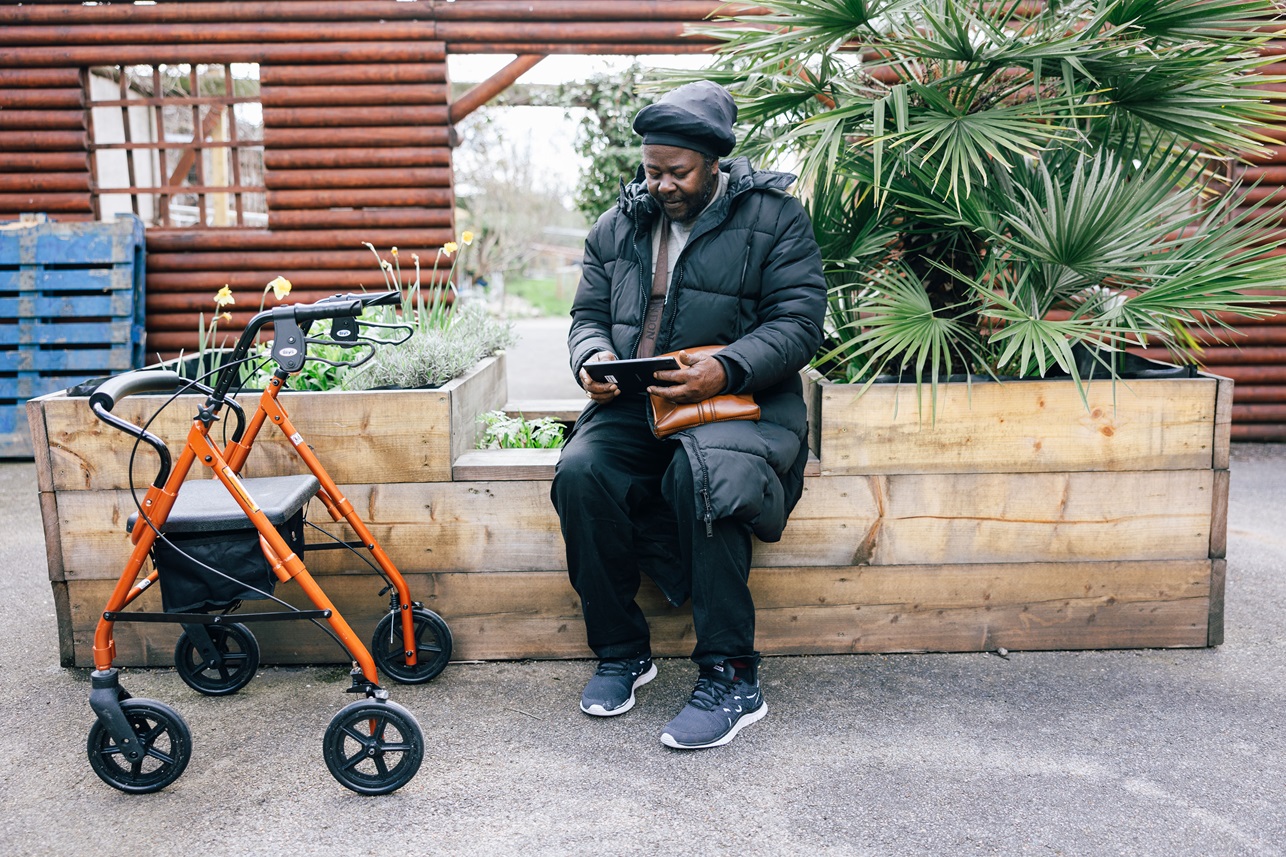Outcomes for individuals, families, and friends
Achieving benefits for tenants/residents, their families and /or friends was a key aim of the TAPPI testbeds’ projects – as it is for many organisations looking to implement technology enabled care (TEC) services. Here we set out some of the key observable outcomes, taking into account key ways in which people have benefitted from using technologies, along with associated challenges and limitations.
Independence and control
Improving independence was a key aim for several of the TAPPI testbeds’ projects and has been a notable benefit for many participants. This ranges from enabling people to carry out daily activities, such as making a cup of tea or turning on lights without assistance, to transformations in confidence, enabling people to feel able to go out on their own where this may not have previously been possible.
The [robotic vacuum] was to help me with my independence. […] I'm able to do it without having to rely on somebody else to do something else for me.

Health
Several of the technologies trialled through the second Phase of TAPPI were preventative in nature, helping to monitor health indicators (such as how often a person uses the toilet, for example) to catch issues early and avoid a health crisis. Others enabled residents to keep track of their hydration or provided reassurance about their health. Notably, the system of support – including responsive care teams – which underlies such technologies is essential to their functioning, and their impact therefore varies across institutional settings.
I'm not a doctor. The [onsite staff are] not doctors. But you see it in black and white, well, blue and green, and orange, or red if [your health has been] very bad. But sometimes it's a wake-up call to see how long I go sometimes without sleeping at all. And then how long I go after that… I know they say how [important] sleep patterns are for health. It's nice to have access to [the data from the mattress sensors]. I think it's great. I would recommend it to anybody.
Safety
An improved sense of safety is a key benefit of technologies used across the TAPPI testbeds. These improvements often come from people’s sense that if they have a problem, such as a fall, technologies will support them in receiving appropriate care more quickly than if they were not using these technologies. Others have highlighted that sensors and video doorbells make them feel more secure in their homes. However, fears around online safety is a notable challenge which can reduce people’s sense of safety if they lack confidence with the digital technologies they are using.
One time my husband and I did have everything on a computer. Then someone within this building… went to her computer one day to do some work on it and she found that £5000 had been moved out [of her bank account]. And it was because she’d answered a [scam] phone call… and she lost all that money… I removed everything I had on my computer and I haven't gone near a computer since… It’s so easily done, and people can be drawn in so easily. So I won't be drawn in because I won't do any [online activities].
Social interaction
Taking part in TAPPI has provided social benefits for some people. For instance, some TAPPI participants highlight that devices such as voice-activated virtual assistants provide a sense of company, which can reduce feelings of loneliness, while others note that the process of co-production has itself brought social benefits, by bringing neighbours together for regular chats. However, it is also notable that some participants were worried that technologies might reduce their opportunities for social interaction by reducing their need for in-person visits from onsite staff.
Everyone's got their individual needs, and I'm assessing them for what you know they need and what's important to them. But I think the overriding feeling I'm getting from each person is that they just don't want things taken away from them; they want to keep things as they are, like, keep on having the carers coming in, and that friendly face that some of them are scared that technology will take away, and they'll have something different… that's sort of their worry.

Peace of mind
The use of technologies was highlighted as providing peace of mind for individuals and for their families. Indeed, some technologies which could remind people to take medications, or which tracked movement or falls, may reduce worries about relatives’ wellbeing. This was highlighted as enabling more meaningful and enjoyable conversations between individuals and their families, beyond simply checking on their wellbeing.
I sometimes fall… For my family, it's good for them to know there’s something else other than them phoning or coming in, or getting things for me. If something goes wrong, they'll be told, or they'll be put in the picture as to what might be happening. I think it's the freedom of mind for everybody. And they don't need [to make] a phone call every morning to say ‘are you okay? Do you need anything today?’ I think it's merely peace of mind more than anything else.

Freedom
For families and friends of people using technologies, improved freedom to go out for longer, or to not feel as much need to rush back to check on their loved ones, was a notable benefit of TAPPI, as technologies could provide reassurance remotely, or improve independence of service users.
He needs to drink two litres of water every day. Loads and loads of water. So the [Smart Speaker], we've got alarms on that now. So it reminds him to drink water! If I'm at work, then we know that those reminders are there… It gives me not loads of freedom, but a little bit of freedom. And I don't need to be rushing back from work. It just gives me a bit of peace of mind.

